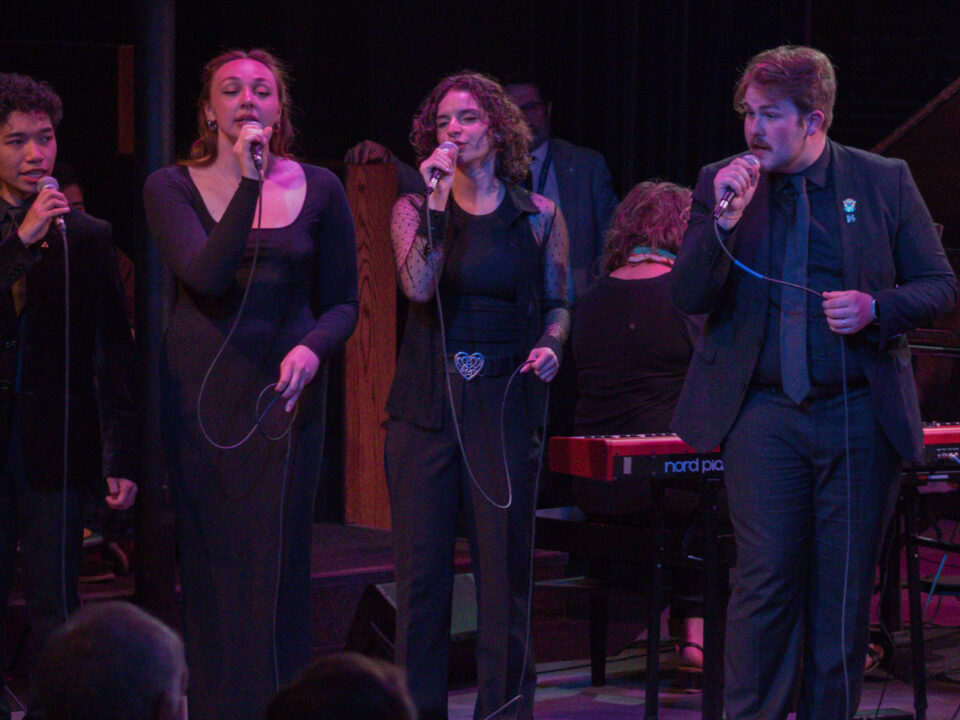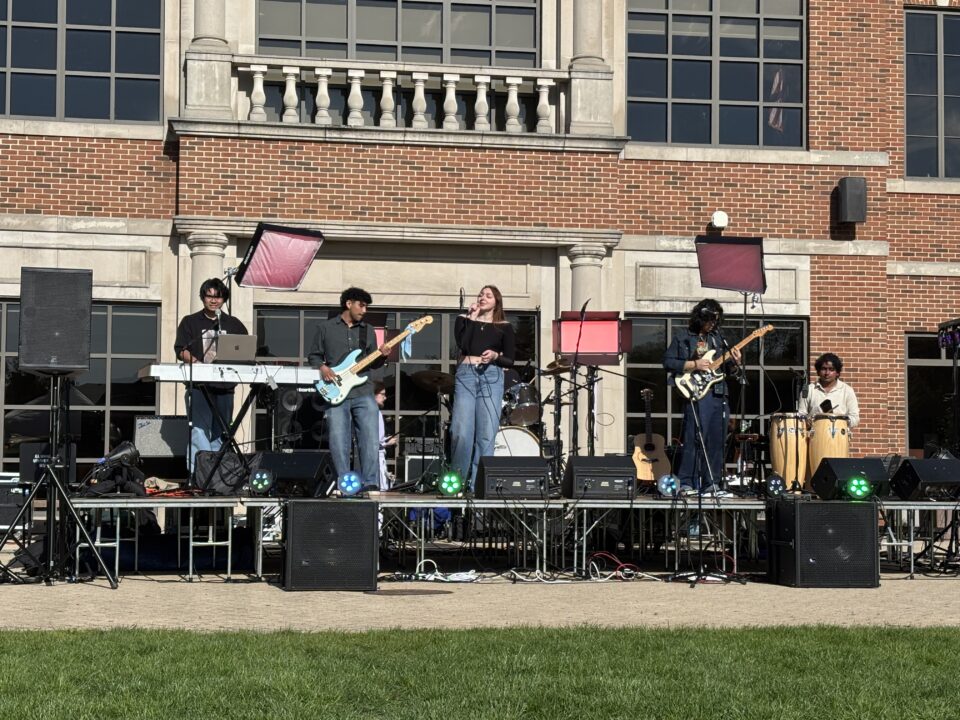Famed Radio Personality Terri Hemmert Returns to EU for Ronald Quest Lecture
Terri Hemmert, known radio personality and notable Elmhurst University alum returned to campus on Nov. 14 to give the Ronald Quest Lecture and interview Grammy Award-winning songwriter Nile Rodgers.
During the interview, Nile Rodgers talked about his early childhood with his parents who struggled with addiction, and how he wrote his hit songs like “We Are Family,” “I’m Coming Out,” and “Material Girl.” He also talked about spending time with artists of the likes of David Bowie and Diana Ross.
Before Hemmert interviewed Rodgers, she sat down for an interview with The Leader, providing a fascinating insight into the world of radio, and how she got to where she is today.
When asked what made her get into working on the radio, Hemmert said, “I was at a study hall where we were supposed to be studying. I had my geography book open with a teen magazine inside and I saw a picture of Cleveland disc jockey Jim Stagg interviewing Ringo Starr. And I thought if I got to be a disc jockey, I could meet the Beatles because I was in this little town in Ohio, and I knew they weren’t going to come there. So, I had to come to them.”
Reflecting on her time at Elmhurst University, then Elmhurst College, Hemmert said, “I learned a lot here. I learned not just about radio, but the classes I took and the friends I made. It was four great years, I have a loving affection for Elmhurst College. I might’ve made it in radio, but I wouldn’t be the person I am if it wasn’t for all of this, it’s not just going to class.”
When asked who the most influential person was that she interviewed, Hemmert didn’t hesitate, “I’d have to put Paul McCartney at the top because I’ve interviewed him a lot and he acts like we’re old friends and we’re not. I’m not stupid. I mean, you know, I can’t call, ‘Hey Paul, can I come over tonight?’ But he is just lovely.”
“And we’ve had some great talks,” Hemmert added. “I mean, really deep talks, you know, talking about how their music isn’t just pop music. It’s music that some people choose to die to.”
There are other people Hemmert has met that she chose to highlight, “Not just celebrities, but the listeners, you know? Being on the radio is like being a musician, music helps people through good times and bad times.”
Hemmert also has unique insights into EU’s history of social justice and activism, as she was on campus during the turmoil of the ’60s, which saw the Vietnam War and the civil rights movement.
“It was the time of the assassinations of Bobby Kennedy and Martin Luther King,” said Hemmert. “They did demonstrations in the mall out here, and they were burning stuff, you know? I mean, it just, it was kind of scary sometimes. You wonder, is it going to get out of control?”
Hemmert noted that the Kent State shootings happened right before she graduated, which she said: “Was a rough time to be in college, but on the other hand, we were in a unique place being on a campus like this, and not being isolated, but feeling like we were part of what was going on around the country.”
Drawing on another campus experience, Hemmert said, “This is the late ‘60s, and this is an all-white suburb at the time. And we were sitting there when all of a sudden, this big group of young Black students come in. And I saw the kids just tighten up. And they were scared. They thought, ‘Oh wow, what are they going to do? Are they going to have a riot or something?’ You know, all that stuff.”
Rather than simply telling the students not to be racist, Hemmert asked, “‘What are you, you know, what are you guys doing?’ And they said, ‘Oh, we’re on our way to decorate for a party tomorrow night.’ That’s back when we decorated for parties.”
“Then it was just like bring some beer or something, you know,” said Hemmert. “But they had crepe paper and balloons and stuff and I said, ‘You need some help, I got these kids here.’ And that’s all I had to do and we went down and those kids were helping.” According to Hemmert, by the end, they were even doing the ‘60s equivalent of high-fives.
After this interview, having indicated that her life had been truly changed by her experiences on EU’s campus and that she has one message to current students.
“I tell this to all of my students,” Hemmert expressed, “Do not let the BS get you down.”


